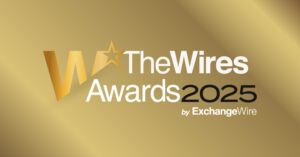Damian Scragg Discusses The Evidon Proposition In Europe And How It Can Help With Compliance Around The ePrivacy Directive
by Ciaran O'Kane on 28th Nov 2011 in News

Damian Scragg is the Managing Director, UK, Evidon. Here he discusses the Evidon proposition in Europe and how its solution can help companies comply with the new directive.
What is Evidon's value proposition to its clients?
Evidon helps brands, agencies, publishers and solutions providers both protect and grow their businesses. Our Evidon InForm platform, which delivers the ‘AdChoices’ icon/notice experience on ads and websites, helps companies give consumers transparency and control over how their information is used online, including the ability to consent to being tracked or targeted. This is the core requirement of compliance with the advertising industry’s Self-Regulatory Program for Online Behavioural Advertising in the US, and with the EU’s ePrivacy Directive.
Evidon Encompass, our newest solution, helps brands to discover all of the third-party trackers on their website(s) and disclose them as a part of their compliance obligation. It also gives them the ability to gauge and control the impact (data leakage, latency, etc.) those trackers can have on their business. This is powered primarily by Ghostery, our popular browser add-on that ‘tracks the trackers’, and its 300,000-member panel that voluntarily sends this tracking information back to us.
So the benefit of Evidon is threefold to businesses:
- they can strengthen their brands, by empowering consumers
- they keep benefitting from data, by using data responsibly
- they are able to improve security and performance, by maintaining good website ‘hygiene’.
How is the privacy issue in the EU/UK different from that of the US?
There are three major distinctions. The first is that the European ePrivacy Directive is law that specifically addresses the storage of information, or access to information stored, in users' equipment, for example via cookies. The US programme is in response to pressure from regulators, but is not covered by any new laws. The second is that the ePrivacy Directive is much broader: it applies to all cookie use and not only to online behavioural advertising (OBA) like the American programme. The third is that EU compliance centres around the definition of ‘consent’.
The implications of non-compliance in the EU are larger than in the US. While compelling reasons to adopt the US Self-Regulatory Programme abound (including the fact that the US Federal Trade Commission [FTC] is bringing cases against companies they feel aren’t being sufficiently transparent with consumers), advertisers can rely on networks and publishers to do most of the compliance work for them. In the EU, if you operate your online business through a company located in a country that’s passed its version of the Directive and don’t offer consumers the required protections, you’re breaking the law. So compliance in a timely fashion is arguably more critical in Europe.
The breadth of the ePrivacy Directive puts a greater onus on the advertiser themselves to manage compliance than in the US. As the US programme covers OBA only, the networks and publishers who deploy the targeting data can handle the opt-out work. In the EU, only the advertiser knows all the different tracking that is happening in their ads and on their websites.
The last major distinction is concept of ‘consent’. The ePrivacy Directive stipulates that businesses must gain consumer consent before storing information, or accessing information stored, in users' equipment. Adding further complexity, the concept is interpreted differently by different countries. Generally, consent is either ‘implied’, meaning it could be satisfied by acceptance implied from a user’s actions or technology (like a browser setting), or ‘explicit’, which would force the user to proactively do something to offer consent, like select an ‘OK to track me’ feature in a browser. Currently, more EU countries appear to be going down the ‘implied consent’ route in their versions of the law.
What is Evidon doing in Europe?
Evidon is bringing our full platform to bear in the EU. The starting point, we are finding, is different. Due to the greater emphasis on brands understanding what cookies are being placed on their own websites, our new Evidon Encompass service is off to a fast start working directly with brands. In addition, we are already in deployment with our In-Ad Notice service via leading advertising networks, exchanges, publishers and agencies. We’ve already rolled out local language support across 14 member states in the EU. Moreover, as in the US, we’re keeping in close touch with regulators, advocates, trade groups and others to help move these initiatives forward, so we can advise businesses effectively. Our upcoming UK event on 6 December, Evidon Empower Europe - The Cookie Compliance Conference, will assemble key leaders, from executives in the ICO to heads of trade organisations like the IAB, to serve that purpose well. Lastly, our popular Ghostery browser extension, which has been downloaded 4.5 million times, has excellent penetration in the UK, with several hundred thousand downloads. Ghostery users also can opt-in to the GhostRank panel, which enables Evidon to anonymously see what trackers are on which URLs, and to cross-reference them with our proprietary database of tracking code. This dataset powers all of our products.
How do clients use your solutions?
Clients use Evidon InForm to deliver best-practice privacy notice across all of their online ad campaigns and websites. Clients use Evidon Encompass to get a handle on all of the tracking activity that’s happening across their sites - some of which they’re aware of, some they’re not. For a brand to disclose everything that’s happening on its site (a requirement of compliance with privacy law), it needs to be able to see it. That investigation can reveal a lot: excessive tracker tags, many of which slow down page load time, which can impact everything from conversions to search engine optimisation. So again, this is just as much about security and performance as it is about compliance with privacy law. Only Evidon can deliver this level of service due to our technology expertise, and the proprietary nature of the Ghostery platform.
How do you price your solution?
Ad and site notice are generally sold on a CPM basis. Encompass is sold on a per-domain basis, with a set fee for the first group of domains and then incremental pricing for additional domains (with discounts at higher volumes). Most of our largest advertiser clients purchase this as a combined package.
How do you differ from your competition?
Technology, expertise and scale make us the only company that can offer the complete package of compliance and website hygiene services that all companies in the online advertising ecosystem need. It starts with Ghostery, which is the largest and only dataset of tracking code on the internet (supplied voluntarily by people navigating web pages, not by crawlers taking random samplings). Since Ghostery uniquely shows us what to look for, we’re able to deliver an unmatched level of service. In addition, since Evidon is the clear industry leader for making ads and websites compliant, with more market share than all our competitors combined, our clients have access to our vast expertise in delivering scalable technology.
How important is Evidon for the legal system in the UK/Europe?
I’d say pretty important, in that we’re providing technology to help facilitate compliance with the law. We built this business specifically to help businesses comply (with regulations here, and with the Self-Regulatory Program in the US) and empower consumers. As I’ve detailed, it’s a complex situation in the EU. The sooner people can make sense of it and demonstrate compliance easily, the better off everyone - consumers, businesses, regulators - will be.
Ad NetworkAdvertiserAgencyAnalyticsDACHDataDisplayEMEAExchangeNordicsTargetingTrading








Follow ExchangeWire